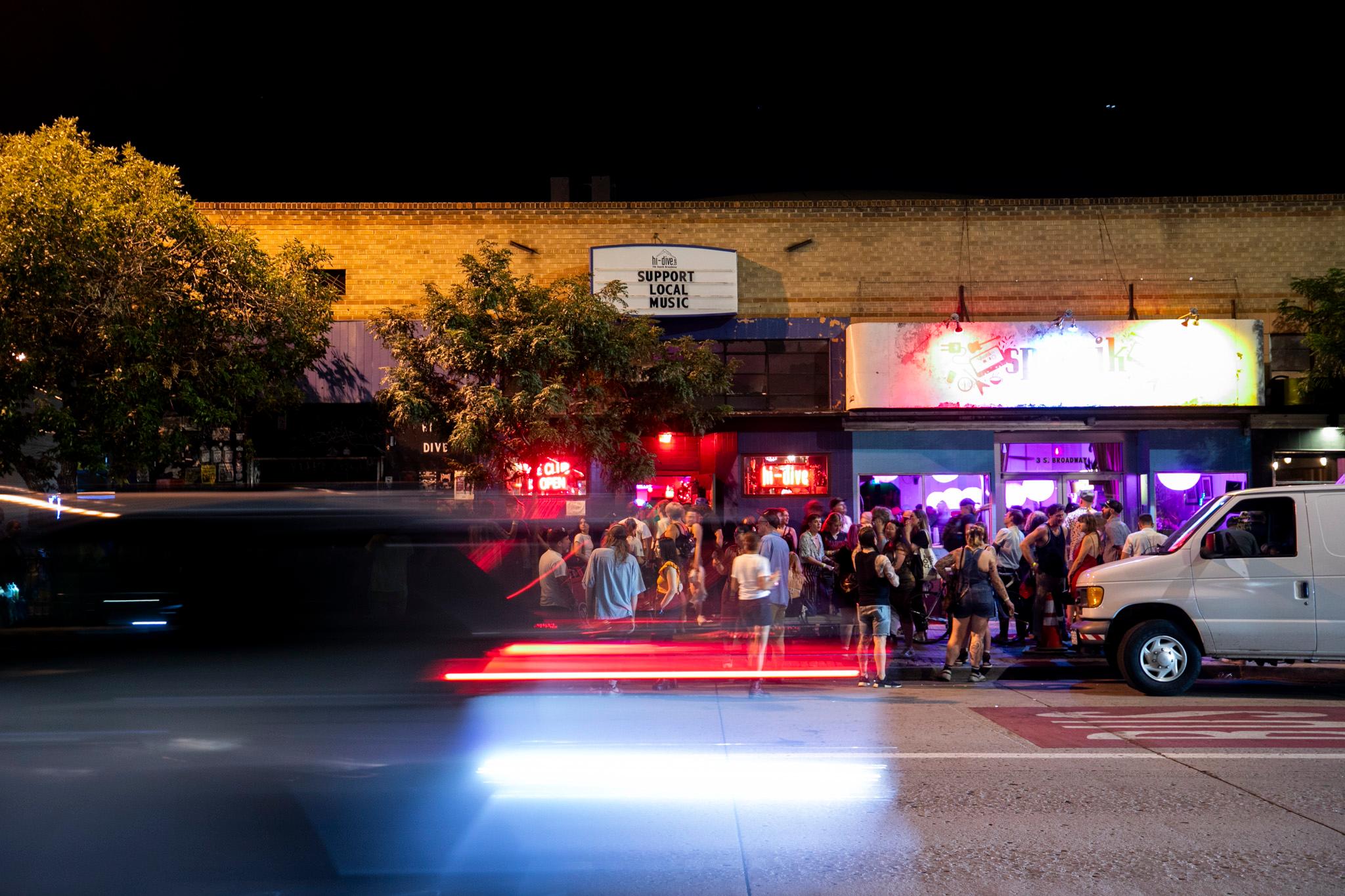Last weekend, Denver’s music community celebrated the 25th and final year of the Underground Music Showcase. Or, as the festival’s organizers referred to it, the final year of the event “in its current form.”
That cryptic messaging weighed on the hearts and minds of those who cherish the annual event. Nevertheless, local music lovers joined together for one final hurrah.
So from Friday through Sunday, the sidewalks of South Broadway were overflowing. Thumping bass and body heat pumped out of bars and music venues. Hot dogs sizzled on every corner and the scent of grilled onions wafted through the air. And above all else, groups of friends reunited, exploring music and making memories.
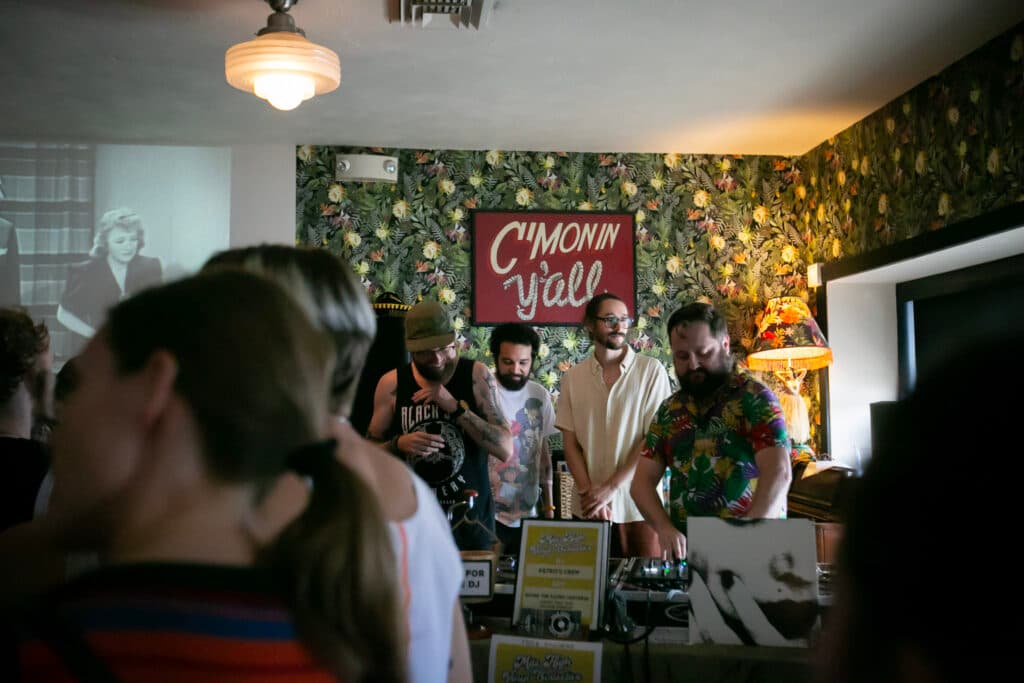
“My favorite thing about the festival is honestly the joy and the hugs,” said Ean Thomas Tafoya, community engagement director for the Underground Music Showcase.
“The reason that the UMS is so beloved is because it is a music festival that, at the heart of it, celebrates the Colorado music scene,” said Alisha Sweeney, host and local music director for Indie 102.3, which, like Denverite, is part of Colorado Public Radio.
“What I love most is people who grind all year get the opportunity to be introduced to a large crowd of fans that aren't familiar with them,” said Kate Fern of the up-and-coming band May Be Fern. “I think it's really important to kind of open up the ability to grow fan bases.”
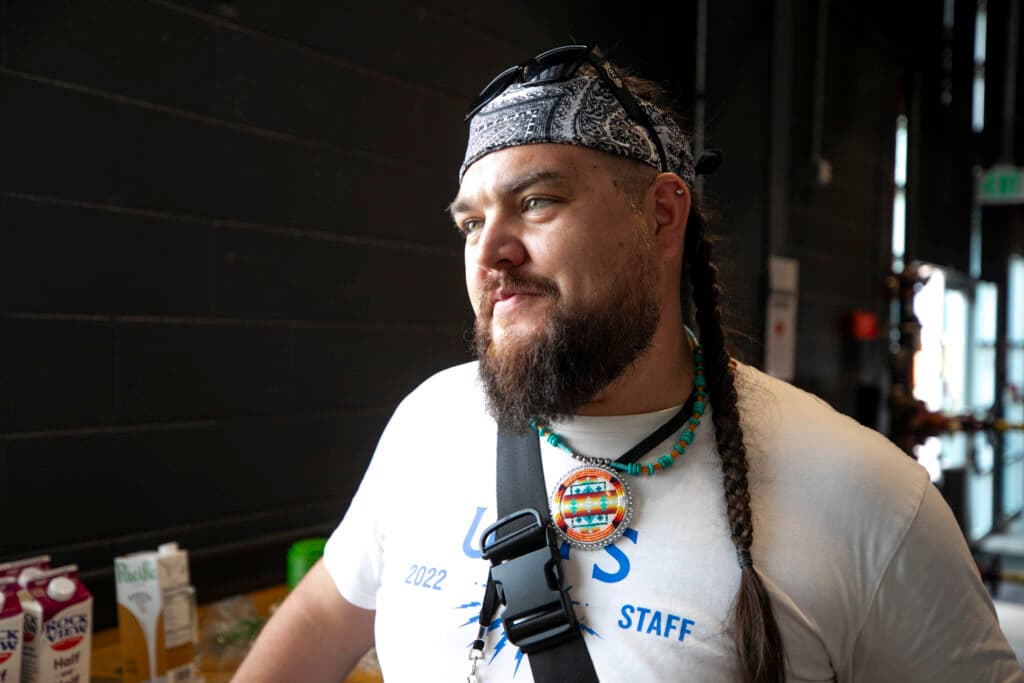
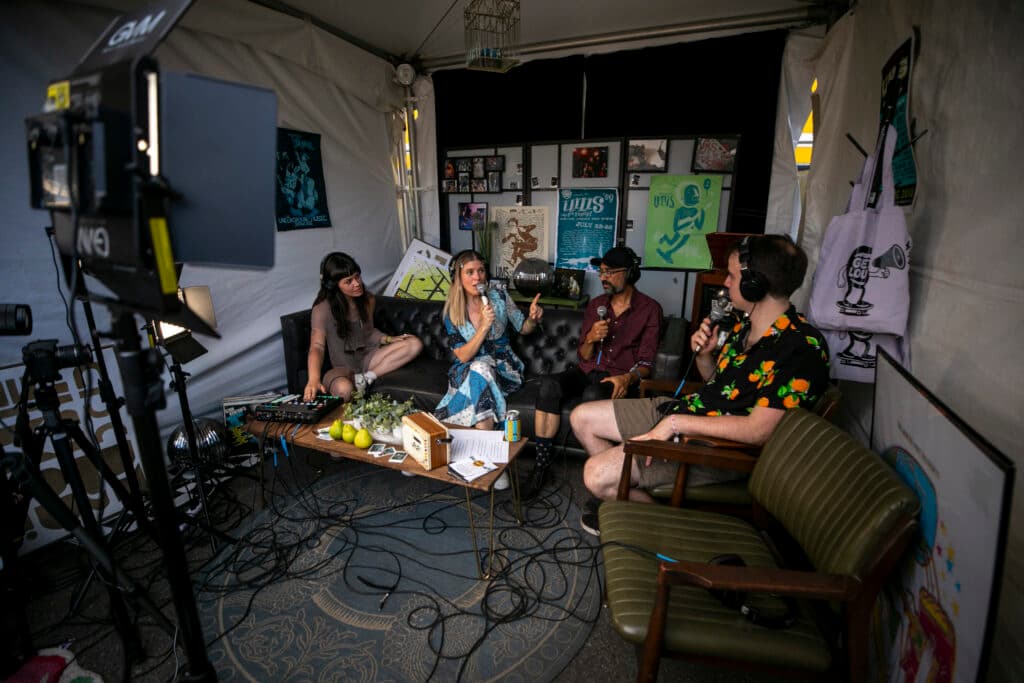
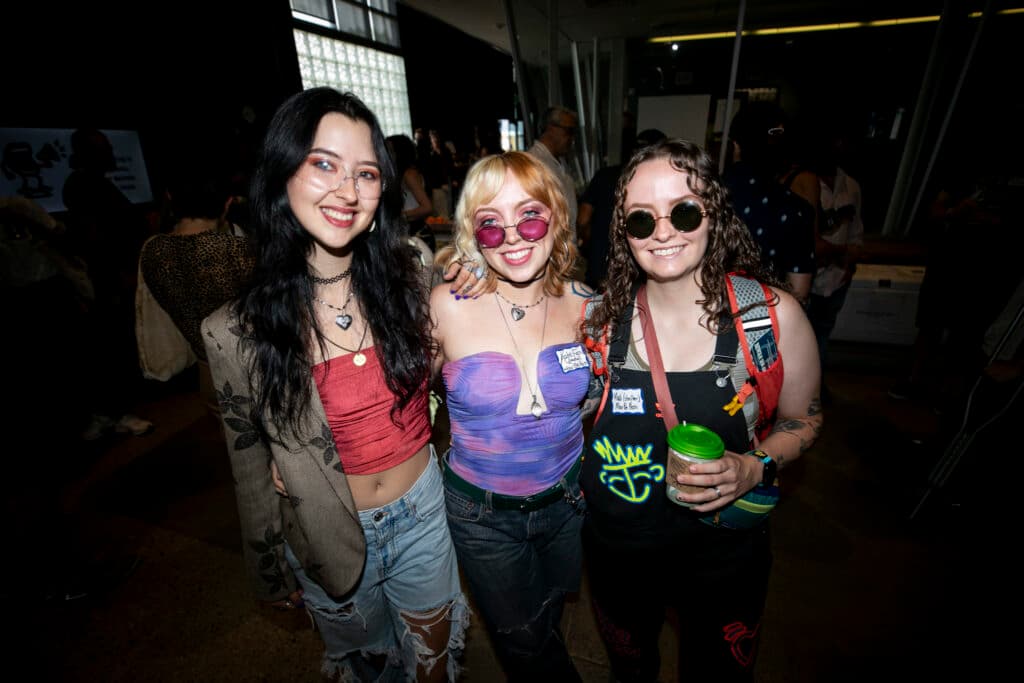
But music festivals are expensive, especially ones like UMS that prioritize fair wages, artist care, accessibility and harm reduction. The industry has been on the decline in recent years, in Colorado and nationwide. Plus, with rising ticket prices and a changing economy, promoters worry people can’t afford to attend as many shows as they used to.
For all of these reasons, and more, UMS had found itself in a bind.
“You do it right or you don't do it at all,” said Jami Duffy, executive director of Youth on Record, which offers music-based programs for youth, and co-manager of the UMS.
Duffy said the festival costs about $2 million to put on, but only makes about $1.5 million in return.
“It's not sustainable,” Duffy said at a UMS Town Hall on Saturday. “It's not sustainable for a lot of different reasons.”
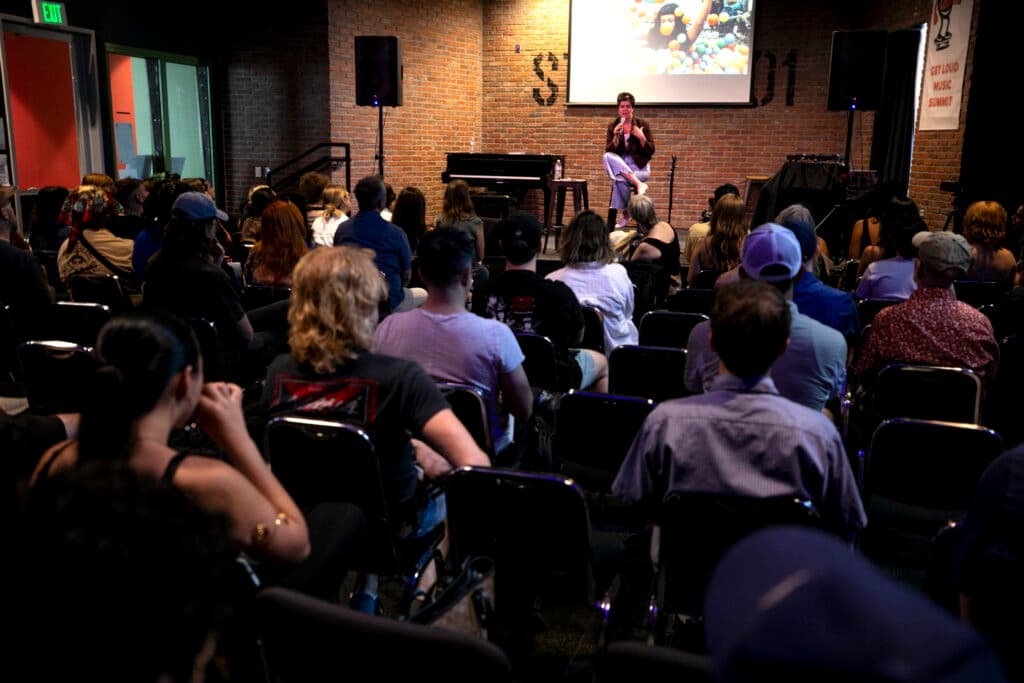
Now, Duffy’s on a mission to pave the way for arts and culture at large.
“I am less attached to UMS as I am to a thriving music ecosystem. UMS is a brand, it's a festival. It's been around for 25 years. Some brands go away,” Duffy said. “But I think if something remains vibrant, relevant, and active, it should be invested in and we should invest in legacy.”
So … are we investing in legacy?
Since its inception in 2001, the Underground Music Showcase has changed considerably. It grew from a small concert — programmed using the results of a Denver Post music survey — to a weekend-long extravaganza with 10,000 to 15,000 guests per day and a lineup of 300 artists.
Some people say the festival has felt less and less underground in recent years.
Sweeney said when she first arrived at the festival, she noticed a large Pepsi activation.
“In my head I thought, ‘corporate sponsorship,’” she said. “But also I thought, ‘Yay, there's some money for the Underground Music Showcase and this festival that I love so much.’”
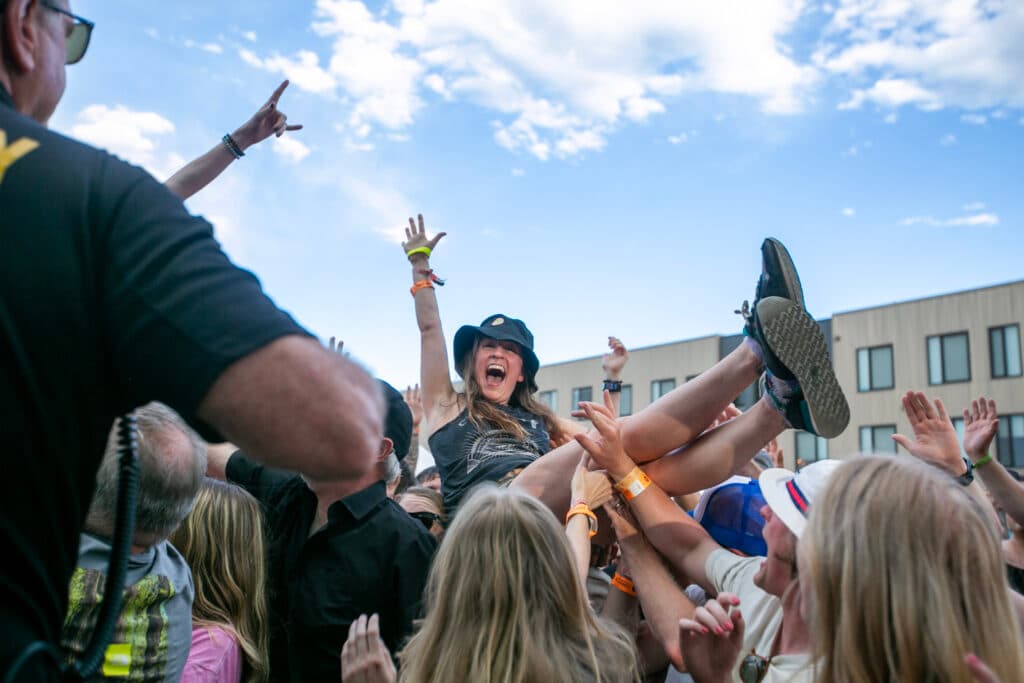
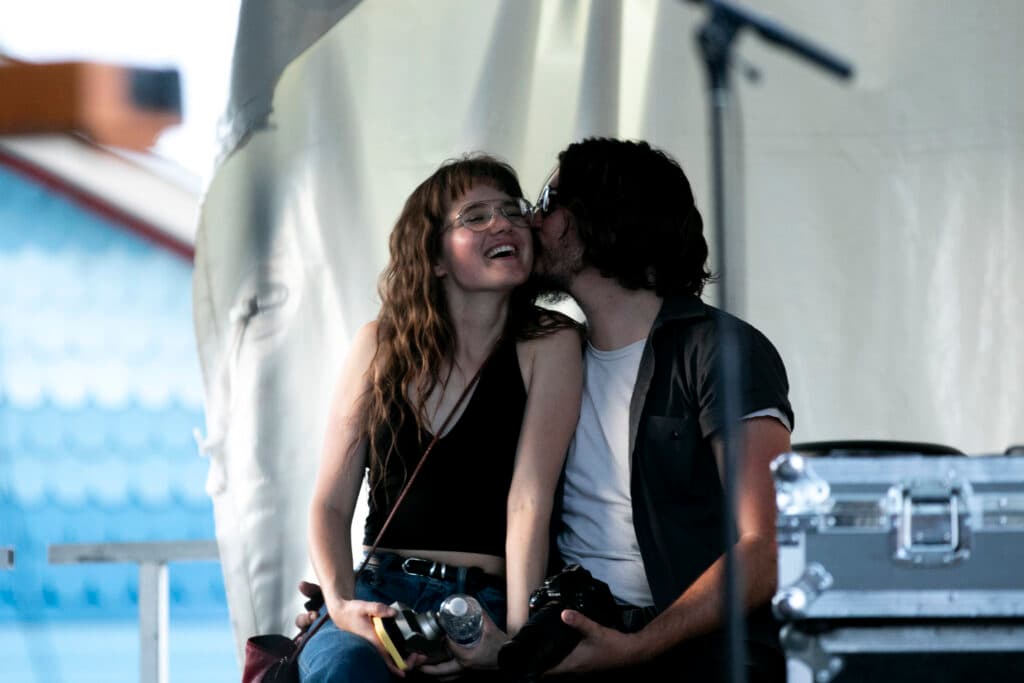
On a different note, longtime Denver band Rarebyrd$ started their set with some harsh words about the festival. “Not all money is good money,” they chanted, and the crowd cheered.
“I know it's hard for artists that wear their politics and their passion on their sleeve,” Sweeney said, “to see it be commodified or corporatized.”
Businesses in the area also have mixed feelings about the festival. Venues that host bands have to pay $500 a day. Many said the foot traffic doesn’t really affect business, but that the festival is good for the neighborhood’s reputation.
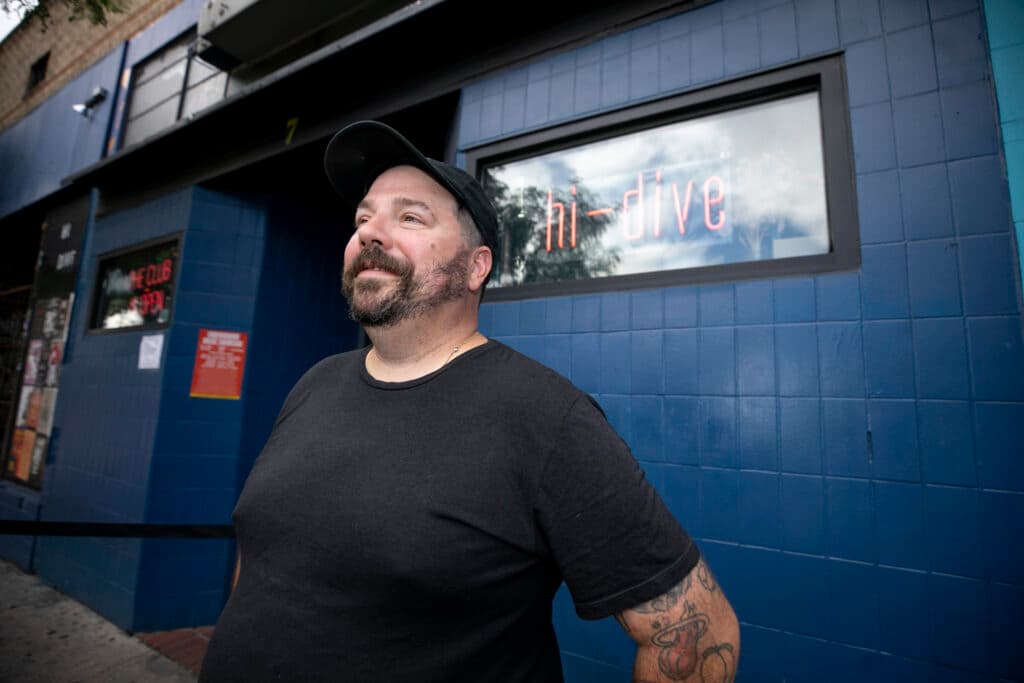
“We love our little strip of Broadway here, and so that's what I think that UMS was to me, was a lot of celebrating the neighborhood and the shops and the unique scene we got going on here,” said Matt Clark, owner and operator of dive bar and concert venue staple Hi-Dive.
“It's a net positive because I think it kind of reinforces Broadway's brand as a music destination, a music street, an independent thing,” said Matthew Brown, owner of FM, a shop and event space on Broadway.
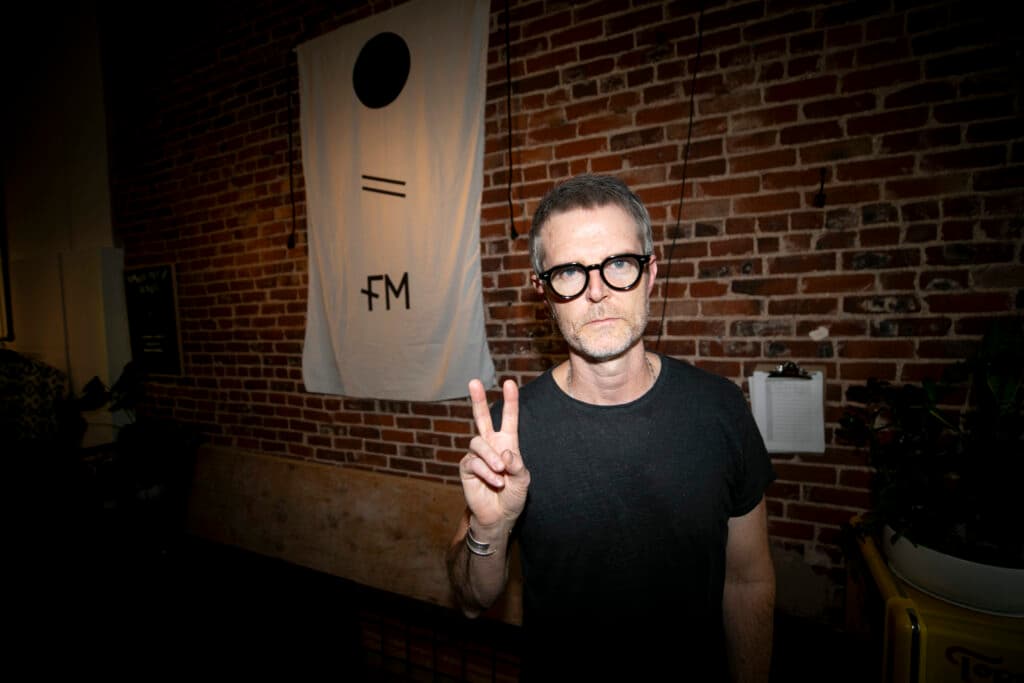
But some folks on the block say it’s starting to detract from business.
“The thing that got me,” said Hillary Schefter, who owns Rhapsody Karaoke bar on South Broadway, “was that this year they decided to have their own bars as part of the festival.”
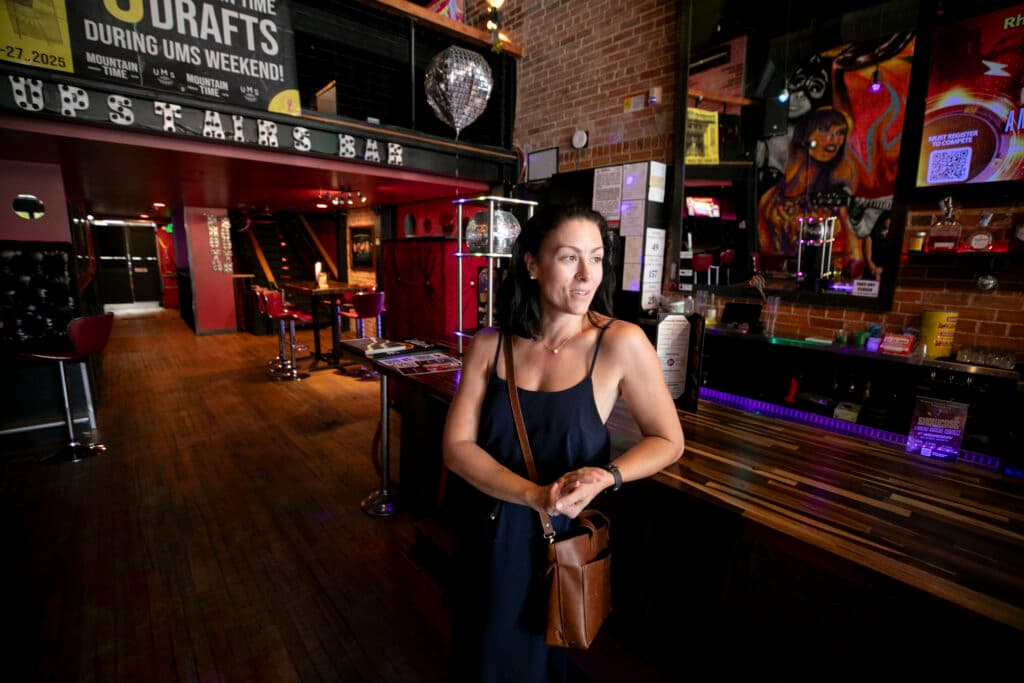
“If you're looking at a row of bars, how do you think that the people who work in and own those bars are going to feel?” she said. “It does seem like the antithesis of the spirit of the thing, particularly in this neighborhood that's known for being pretty, not counterculture, but we want to do things independently. We want to do our own thing. And when you say you want to support small businesses and you want to support local things, then you should actually do that.”
A search for clarity
At the UMS Town Hall, a forum for local musicians, industry bigwigs, and other community members, Jessi Whitten, a director at Levitt Pavilion and host for Indie 102.3, cut to the chase.
“We keep hearing UMS is ending ‘in its current form,’” she probed Duffy in front of the crowd. “What does that mean to you?”
“Will we have a three-day UMS on Broadway the last weekend of July with Two Parts and Youth on Record at the helm next year? A slim-to-none chance,” Duffy replied.
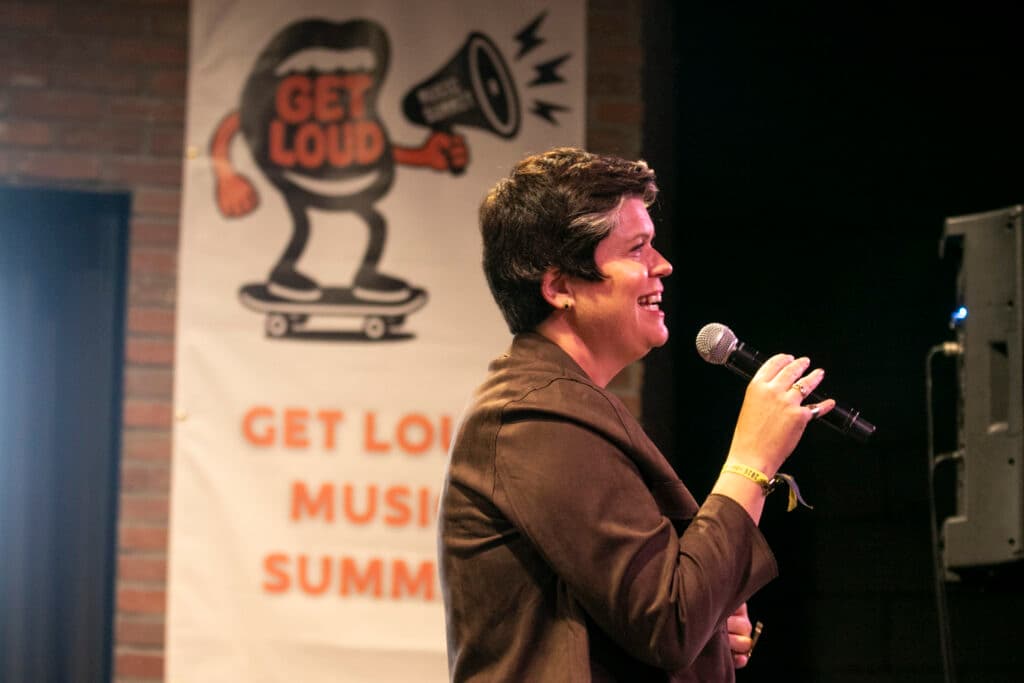
“We need more support, but this is bigger than a GoFundMe campaign,” she added. “So in its current form, yeah, it's not going to look like this … At least not next year.“
Then, DNA Picasso, a local hip-hop artist and founder of the Colorado Music Industry Alliance, took the mic.
“In my mind, ‘Indie’ and ‘DIY’ has this crazy negative connotation,” he said. “It means struggling to me. And I feel like we spend so much time raging against the machine to maintain independence that we fail, we go away.”
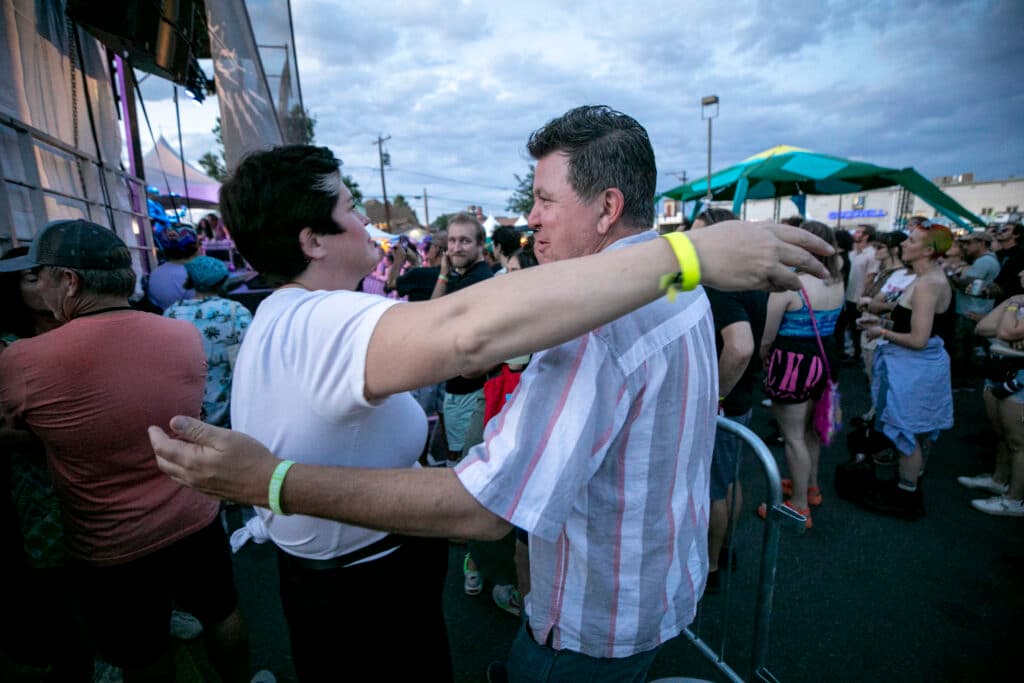
Keanan Stoner, creative director of the Two Parts marketing and public relations agency, told Denverite, “I think we're admitting right now that we need some help to figure this out.”
When asked if the Underground Music Showcase would accept a major sponsor, making it even less “underground,” but more sustainable, Stoner said, “Part of me is like, ‘Yes, that's exactly what we need. We need a big check.’ But part of me is like, ‘Big checks don't solve everything.’”
All eyes on politics
“I would love for the Underground Music showcase to have more support from the city of Denver,” Sweeney said. “I would love for the Underground Music showcase to have more support from the state of Colorado.”
In June, Denver’s 2-year-old Outside Festival received funding from the state's Economic Development Commission. Meanwhile, the 25-year-old Underground Music Showcase has been unable to receive support from the city or the state.
“The reason that they got support from the city and that the UMS has not over the years, is that it was at a park,” Sweeney told Denverite. “So it was parks funding that went to Outside Festival."
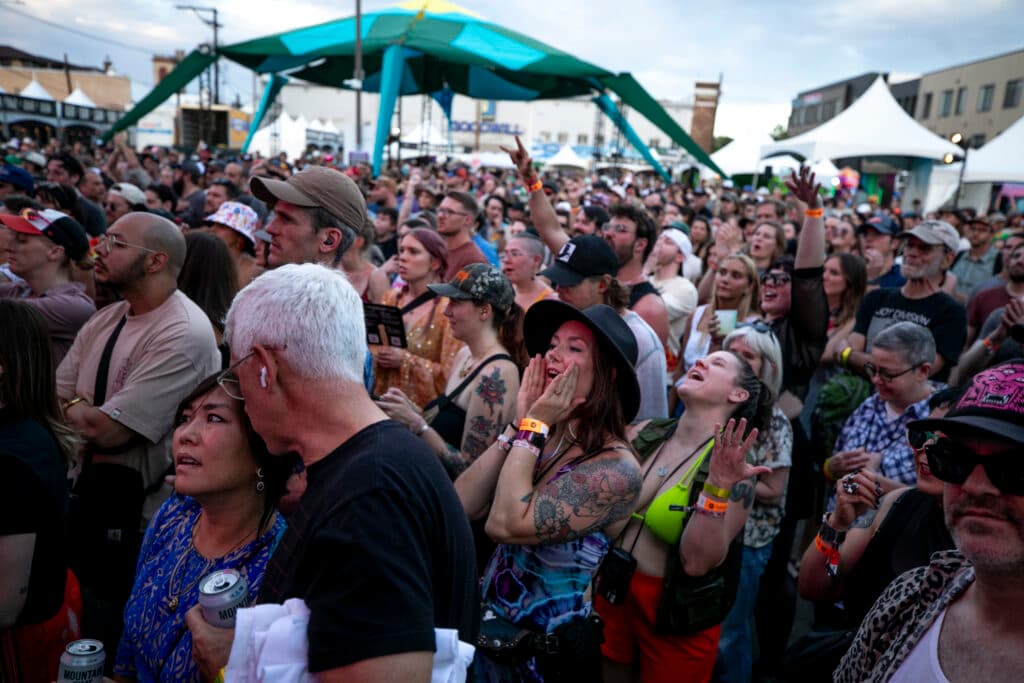
“The parks have organized so well that they are always one of the top-funded in all of our infrastructure bills,” Duffy explained during the Town Hall. “Parks have done an incredible job of saying that it is your right in Denver to have a park within walking distance of your house. Could we say it's also your right to have access to music and art within walking distance of your house? Might be worth looking at.”
“We have new governors coming and a lot of elections on the horizon,” Tafoya said. “I hope more resources get put into these kind of local festivals.”
Editor’s Note: Indie 102.3 is a part of Colorado Public Radio, as is Denverite, and a sponsor of the Underground Music Showcase. Ricardo Baca is co-founder of UMS and serves on CPR’s Board of Directors. Neither Baca nor any Indie employees had editorial influence on this story.

